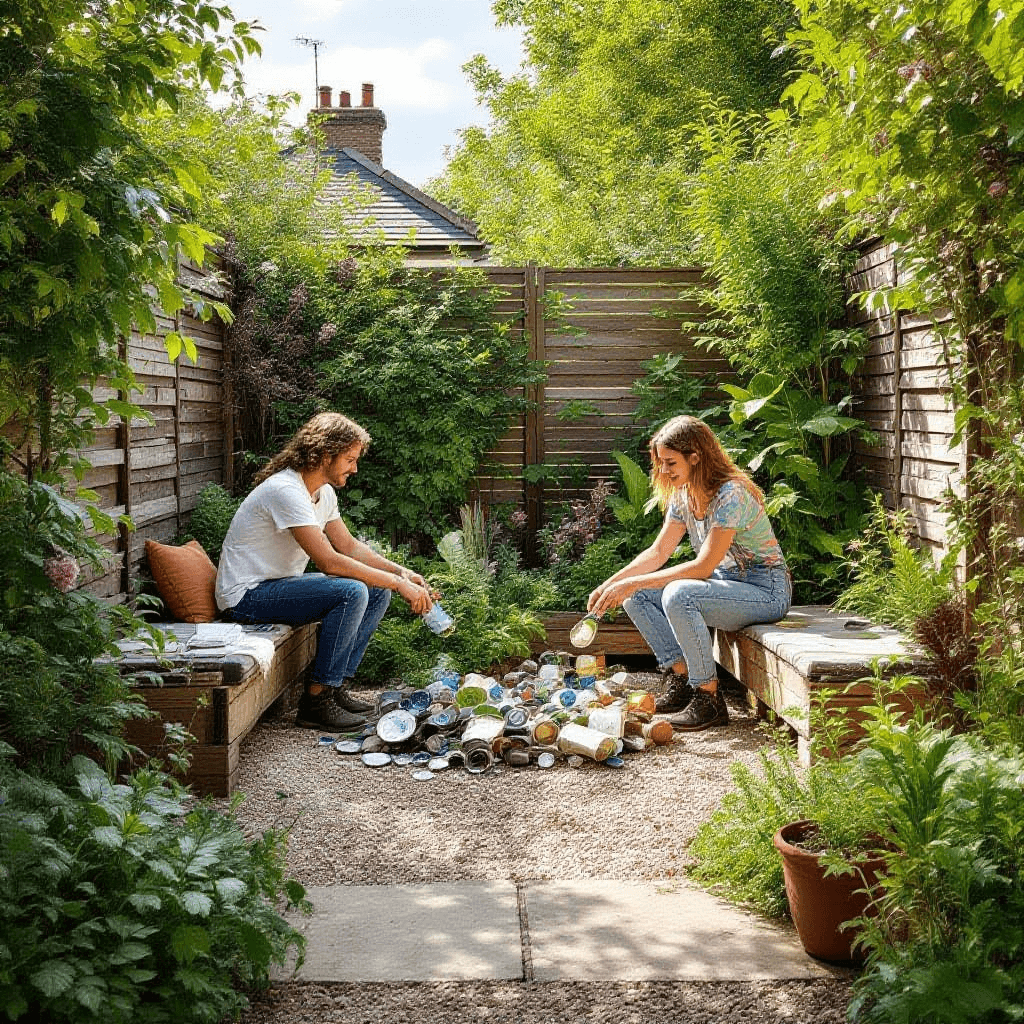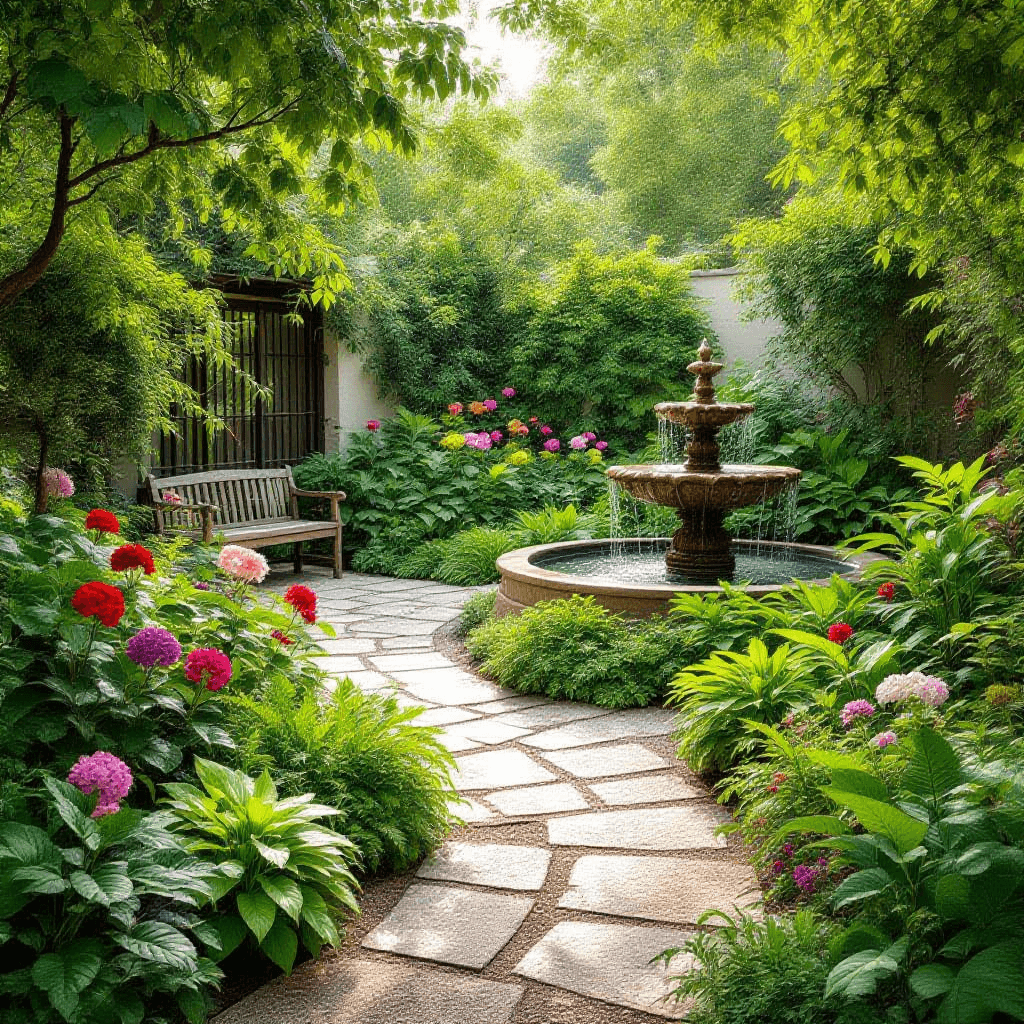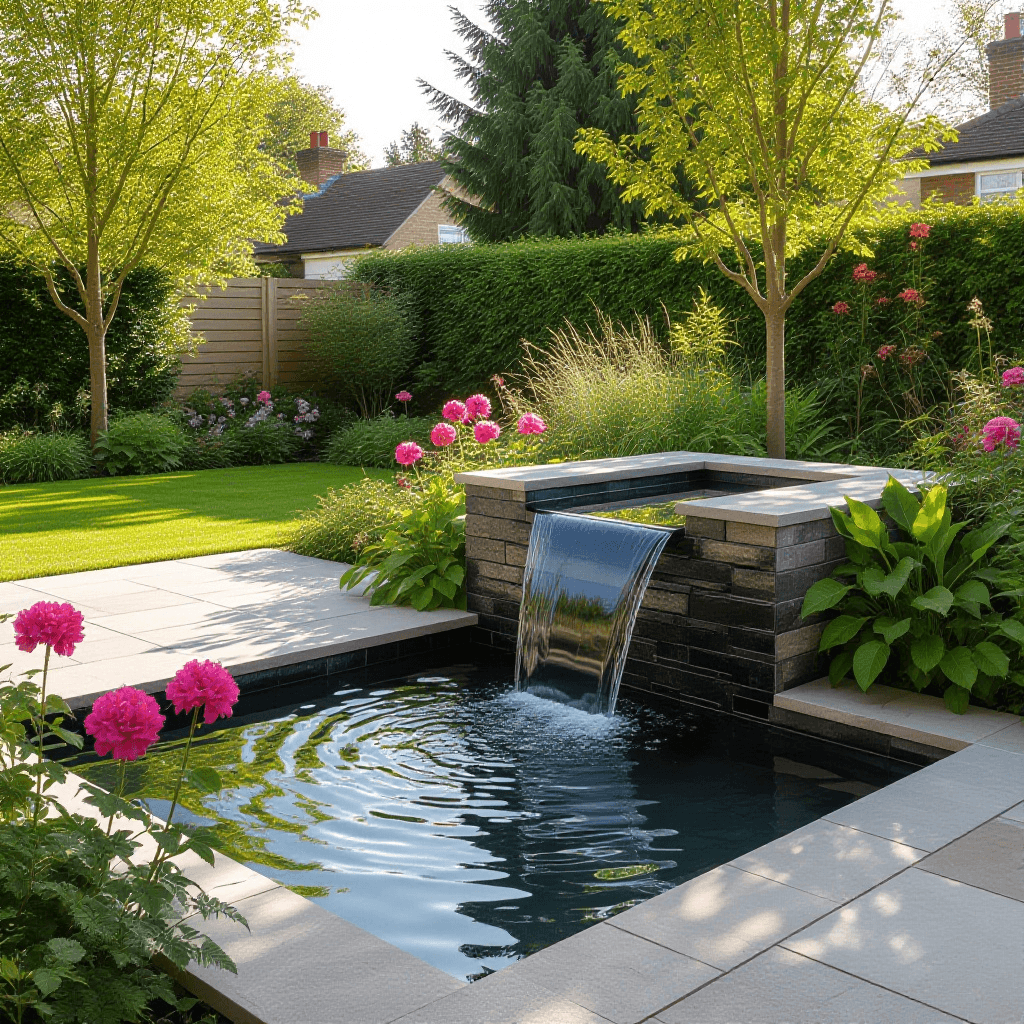Introduction to Recycled Materials in Garden Design
In recent years, the concept of incorporating recycled materials into garden design has gained significant traction in the UK. This growing trend reflects a broader movement towards sustainable practices in landscaping, driven by increasing awareness of environmental issues and the impacts of traditional material usage. By utilizing recycled options, garden designers not only minimize waste but also reduce the consumption of virgin resources, thus contributing positively to the environment.
The environmental effects of conventional gardening materials can often be profound. From the extraction and processing of natural resources to the carbon footprint associated with transport, traditional materials such as timber, stone, and plastic can contribute to environmental degradation. By contrast, the integration of recycled materials lessens these impacts. Recycled bricks, reclaimed timber, or repurposed metals serve as effective alternatives that help conserve natural resources while providing unique aesthetic qualities to garden spaces.
Furthermore, opting for recycled materials supports a circular economy, which emphasizes the importance of reusing and repurposing resources. This approach not only aids in reducing the amount of waste sent to landfills but also promotes innovative design solutions that can elevate a garden’s character. Incorporating elements like crushed glass pathways, recycled plastic edging, or salvaged wood furniture introduces new textures and narratives, enhancing the overall garden experience.
As the demand for environmentally-conscious designs continues to grow, garden designers, landscape architects, and homeowners in the UK are increasingly recognizing the advantages of using recycled materials. This exploration into the benefits of sustainable materials paves the way for more eco-friendly garden design options, ultimately fostering a deeper commitment to preserving the environment.
Environmental Benefits
Utilizing recycled materials in garden design offers numerous environmental advantages that contribute significantly to sustainability efforts. One of the primary benefits lies in waste reduction; by incorporating materials that would otherwise end up in landfills, such as reclaimed wood and repurposed bricks, designers can play a vital role in minimizing refuse. This practice not only alleviates the burden on waste management systems but also encourages a culture of recycling and repurposing, setting a positive precedent for future projects.
Furthermore, the use of recycled materials is instrumental in lowering carbon footprints. Manufacturing new materials typically involves significant energy consumption, resulting in greenhouse gas emissions. In contrast, repurposed items derive their value from their existing utility, thus saving energy and resources in their production. For example, utilizing recycled plastic for garden furniture or decorative features effectively reduces the need for virgin materials, thereby conserving fossil fuels and decreasing air pollution.
Natural resource conservation is yet another critical benefit associated with recycled materials. The ongoing extraction of raw materials can lead to ecosystem degradation and the depletion of vital habitats. By choosing to use materials like reclaimed wood—which can be sourced from old furniture or building renovations—garden designers actively contribute to preserving forests and supporting biodiversity. The incorporation of sustainable materials not only fosters healthy ecosystems but also promotes the growth of plants that are native to the area, thereby enhancing the biodiversity of local wildlife.
In essence, the selection of recycled materials in UK garden design has a profound positive impact on the environment. From reducing waste and carbon footprints to conserving natural resources, these practices create a sustainable future for garden spaces while simultaneously promoting biodiversity and protecting ecosystems.
Economic Advantages
The integration of recycled materials into UK garden design offers significant economic benefits. One of the primary financial advantages is the potential for cost savings on materials. By sourcing reclaimed items, such as bricks, stones, and timber, garden designers and homeowners often find these alternatives to be more affordable compared to purchasing new materials. The reduction in expenses can be particularly beneficial for large projects where material costs can quickly accumulate.
Moreover, the adoption of recycled materials often leads to lower maintenance costs. Natural weathering processes and the durability of high-quality reclaimed items mean that they are less likely to require replacement or extensive care over time. Consequently, utilizing already available resources not only minimizes initial costs but also diminishes long-term financial commitments for upkeep.
In addition to cost savings, many businesses and homeowners in the UK can explore potential funding or grants specifically aimed at sustainable landscaping initiatives. Government programs and local councils often promote environmentally friendly practices by offering financial incentives for projects that incorporate recycled materials. This available funding can substantially offset initial expenditures, making the economic case for using recycled options even stronger.
Furthermore, engaging in sustainable practices can enhance a property’s value. Properties featuring attractive gardens that use recycled materials have the potential to appeal to a demographic increasingly prioritizing sustainability. Therefore, property owners implementing eco-friendly designs may notice an increase in property resale value, providing an additional financial incentive.
Ultimately, the economic advantages of employing recycled materials in garden design are multifaceted. By reducing material costs, minimizing maintenance expenses, and accessing available funding, individuals and businesses can save money while supporting environmental initiatives, thereby fostering a more sustainable future in the UK landscaping sector.
Aesthetic and Practical Benefits
Incorporating recycled materials into garden design offers both aesthetic and practical advantages that resonate well with both designers and homeowners. One of the key aesthetic benefits of using reclaimed materials is their unique character. Unlike new materials that often exhibit uniformity, recycled materials often possess a rich history and individuality. This distinction can infuse a garden with creativity, allowing for unusual combinations of textures, colors, and forms that reflect the owner’s personality and style. For instance, using old bricks for edging or reclaimed wood for benches introduces a rustic charm that is difficult to replicate with standard, new alternatives.
Moreover, the visual appeal of recycled materials can enhance the overall landscape while promoting a narrative of sustainability. By opting for these materials, garden design tells a story of preservation and responsibility toward the environment. This is particularly relevant in the UK, where there is a growing trend among homeowners to create spaces that not only look good but also have a positive impact on the planet.
In addition to aesthetic considerations, the practical advantages of using recycled materials are significant. Many recycled options are remarkably durable, having already stood the test of time in their previous applications. For example, reclaimed bricks and stones not only add visual interest but also provide long-lasting stability and support in garden pathways and walls. Furthermore, materials like recycled plastics can offer excellent resistance to weathering while remaining lightweight and easy to install. From a functional standpoint, these materials can meet diverse landscaping needs, ensuring both practicality and sustainability.
Therefore, utilizing recycled materials in garden design transcends mere environmental responsibility; it enhances the beauty, durability, and functionality of outdoor spaces, making it a wise choice for any UK garden enthusiast.


